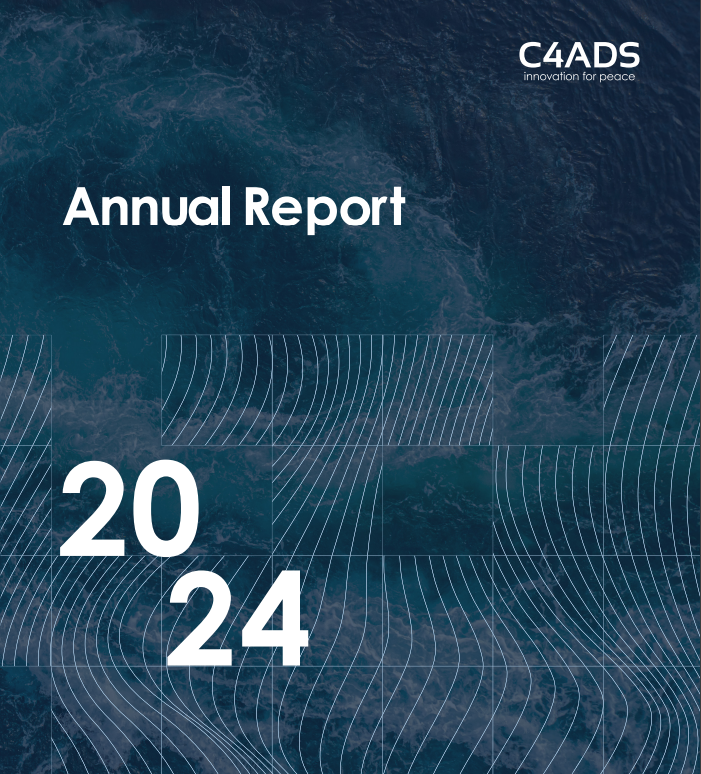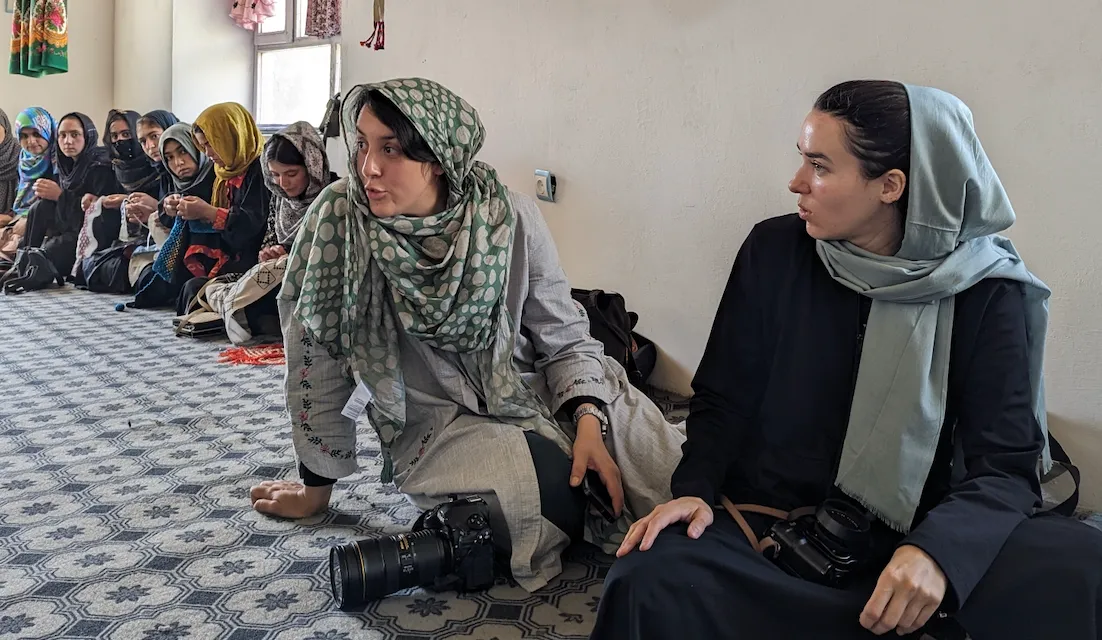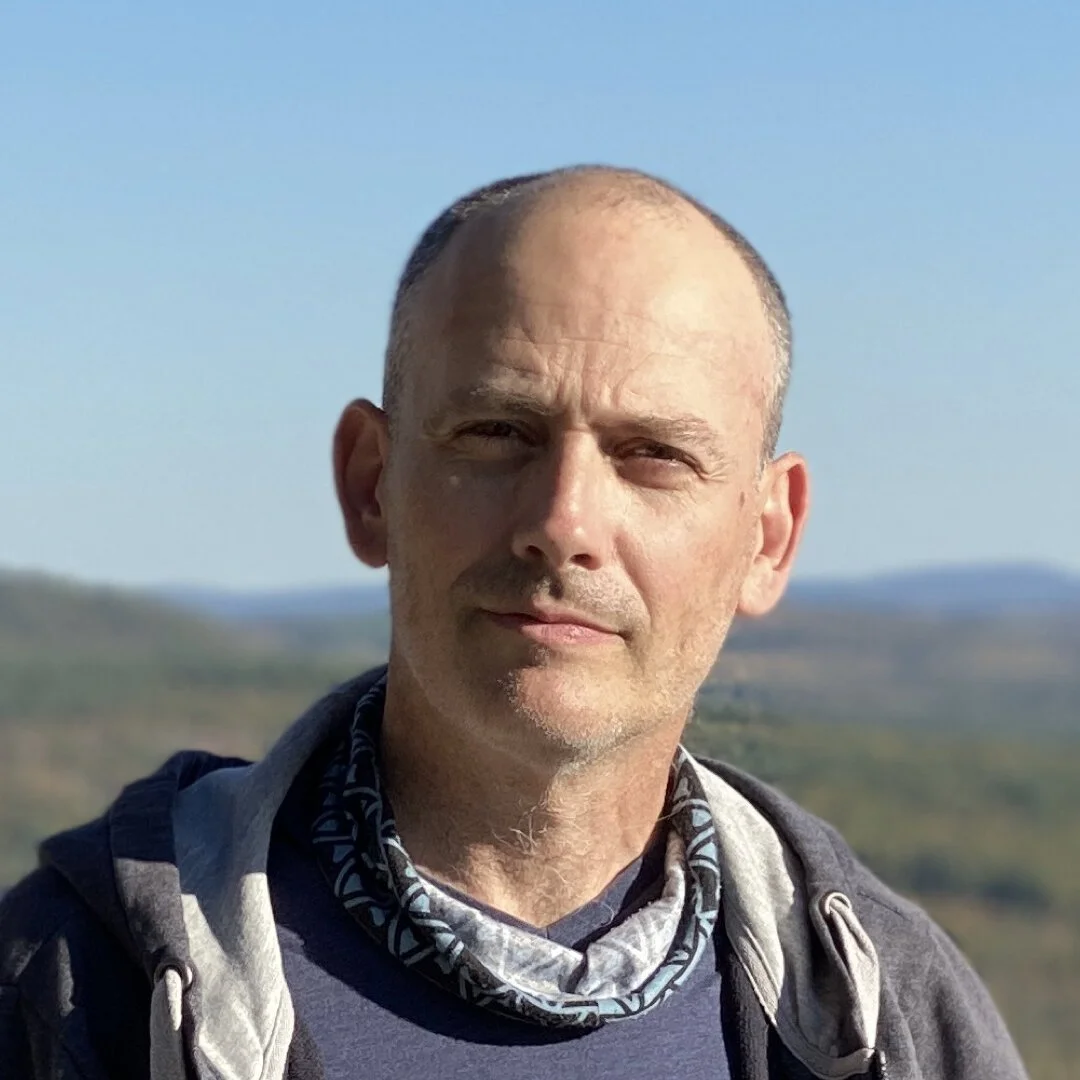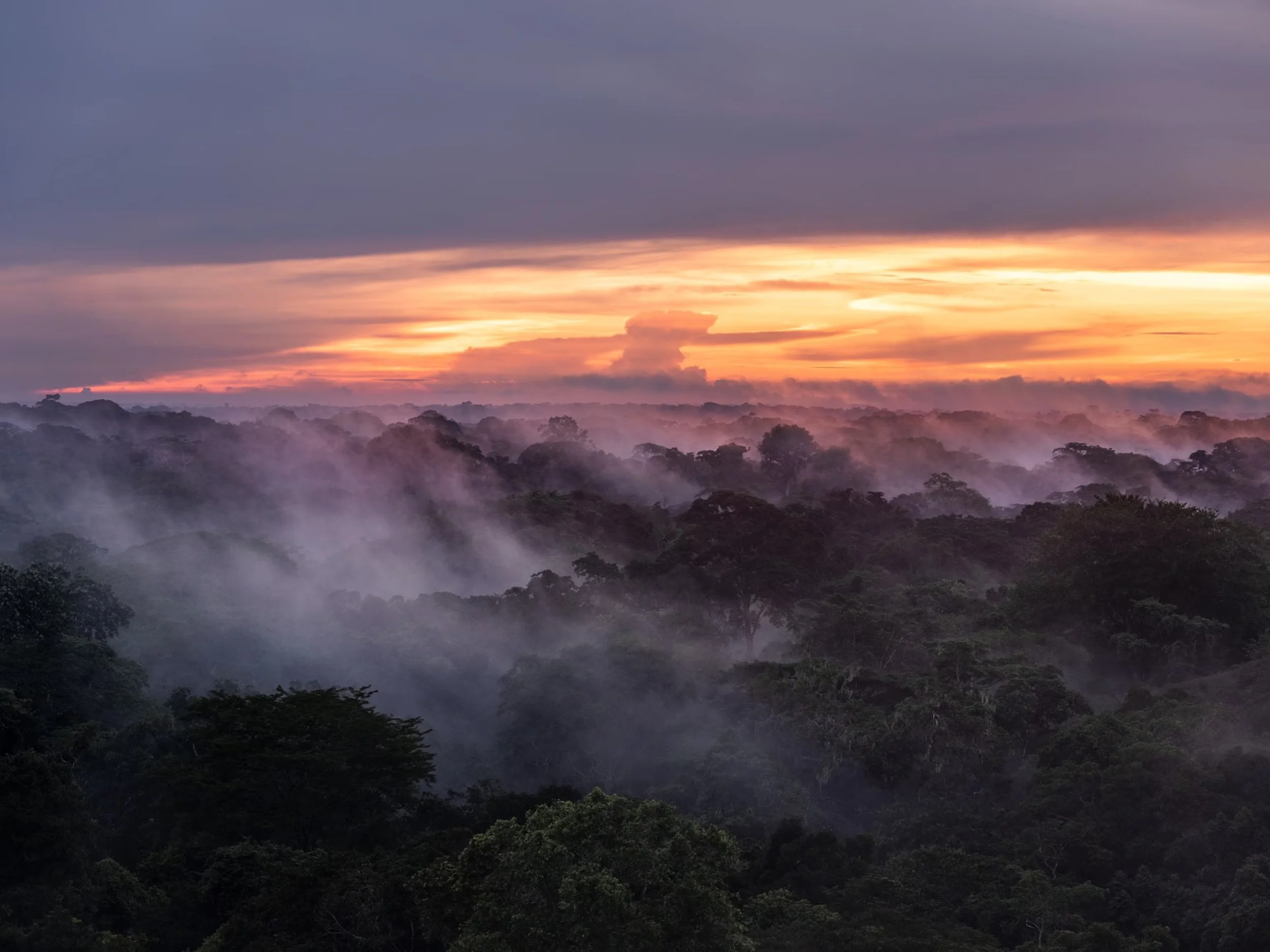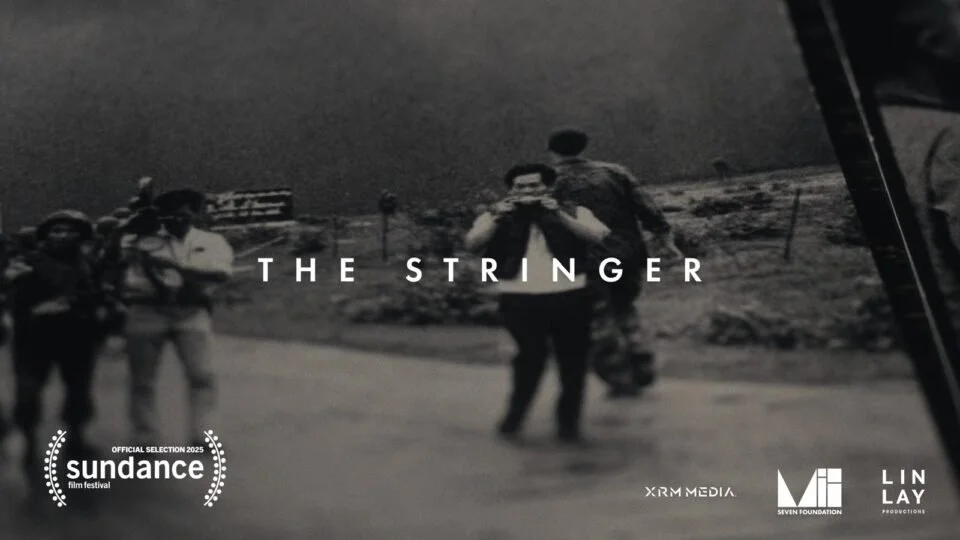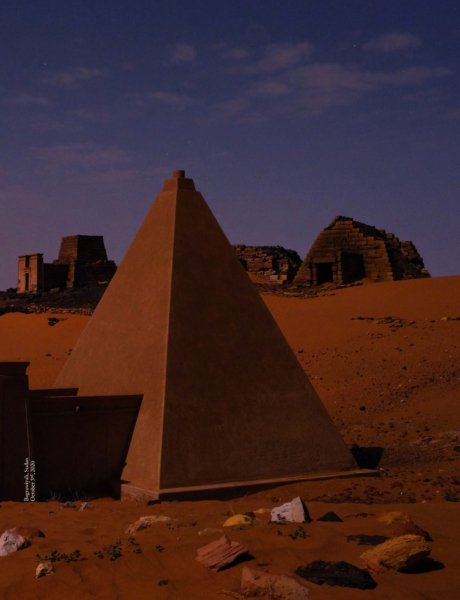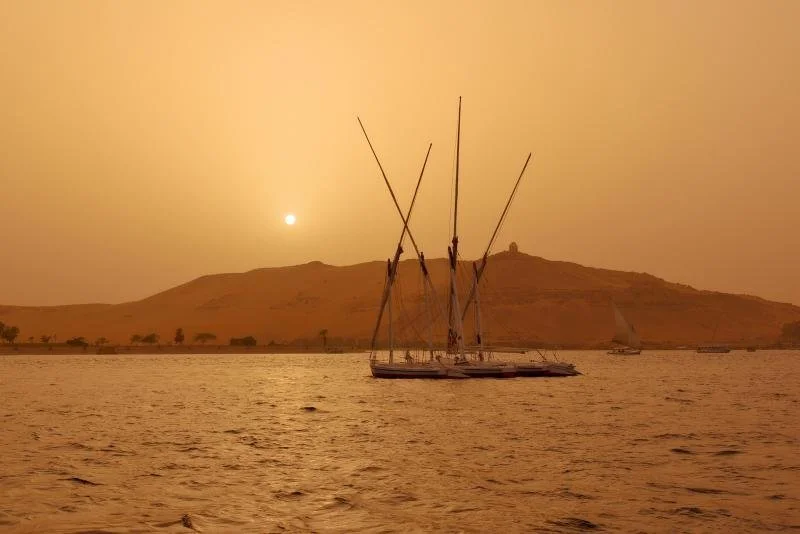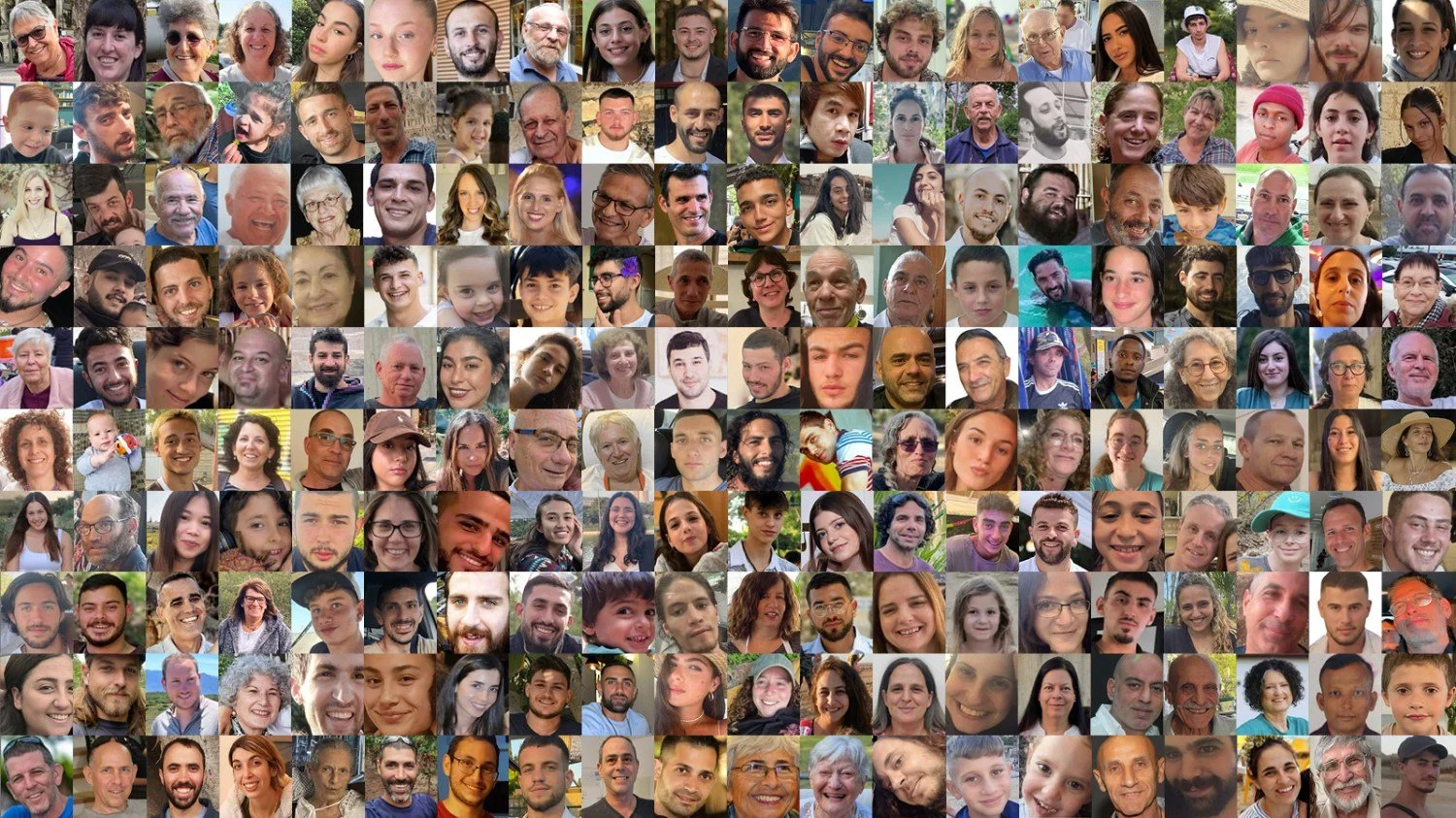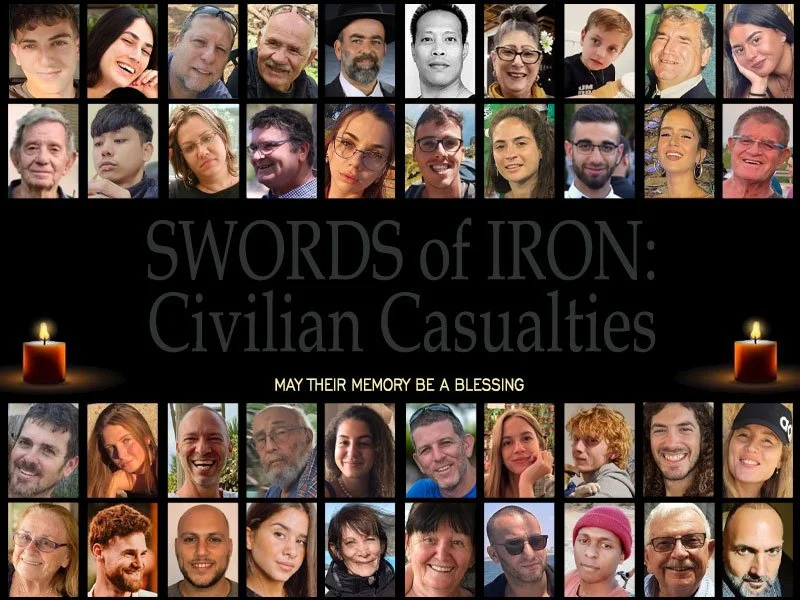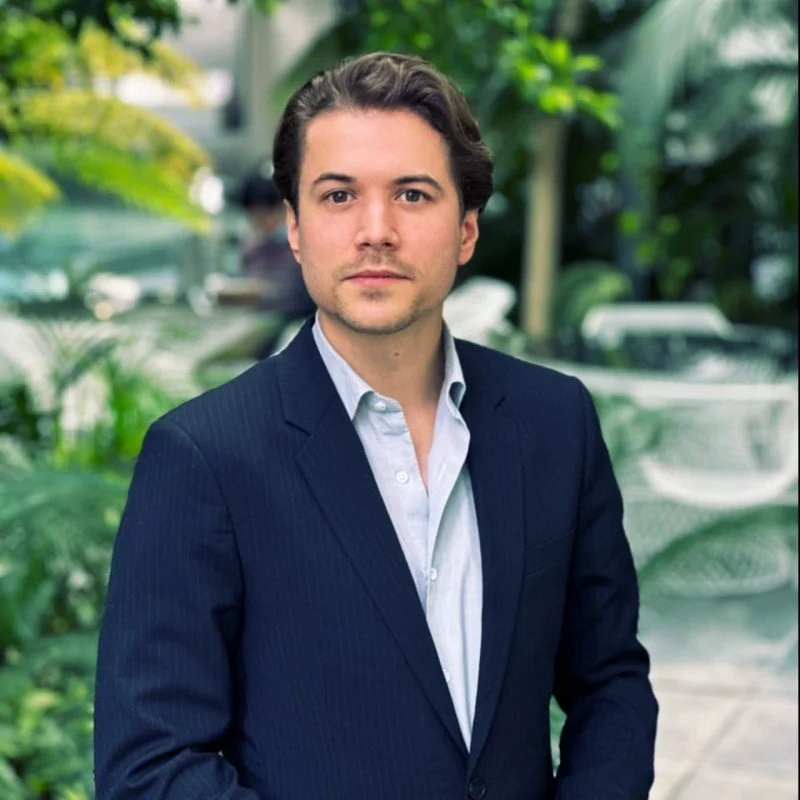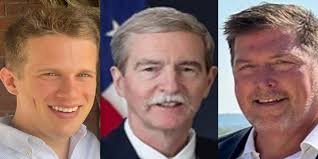AI Resistance Art & Symbols of Resistance: A Visual Archive
Boston Plaza Demonstration
More…
A Graphic composed by Mentor Ehren Brav
Leveraging the power of AI image generation... Feel free to distribute - I certainly will be.
C4ADS Releases 2024 Annual Report on Global Security and Data-Driven Impact
The Center for Advanced Defense Studies (C4ADS) has published its 2024 Annual Report, offering insights into its global efforts to expose and disrupt illicit networks that pose threats to international security.
The report highlights C4ADS's commitment to using open-source data, cutting-edge analytics, and cross-sector collaboration to address complex transnational issues, including environmental crime, corruption, and weapons trafficking.
This year’s report outlines strategic case studies, capacity-building initiatives, and partnerships that have strengthened accountability and transparency worldwide. It also showcases how C4ADS has supported journalists, civil society, and governments through their innovative data platforms and intelligence tools.
Explore the full report and learn how C4ADS is using data for global impact:
C4ADS 2024 Annual Report
Institute for Nonviolence Chicago: 2024 Impact Report
The Institute for Nonviolence Chicago has released its 2024 Impact Report, offering a comprehensive look at its efforts to foster peace, reduce violence, and build community resilience across Chicago.
This year’s report highlights significant strides in outreach, case management, and community engagement. From supporting young people in crisis to mediating gang conflicts and providing trauma-informed care, the Institute’s work continues to be a critical force for healing in neighborhoods disproportionately affected by gun violence.
The report also details collaboration with local partners, success stories from frontline outreach workers, and strategic growth in data-driven programming—all rooted in the principles of Kingian Nonviolence.
Read the full report and explore how nonviolence is making a difference:
2024 Impact Report – Institute for Nonviolence Chicago
No Woman’s Land: Behind the Scenes of a Groundbreaking War Documentary
Kiana and Mélissa visiting a women's center in Badakhshan
Between January and June 2024, photojournalist Kiana Hayeri and researcher Mélissa Cornet traveled across seven provinces in Afghanistan, documenting the lives of over 100 women and girls living under Taliban rule. Their project, No Woman’s Land, offers a rare and intimate view into everyday acts of resistance in a country where women’s freedoms have been systematically stripped away.
Using light, shadow, and collaboration, they created dignified, anonymous portraits, accompanied by deeply researched interviews. The project captures small moments of joy and humanity—dancing, art, celebration—as powerful forms of protest.
Security, consent, and ethics were central to their process, as they navigated high-risk environments without a security team. Their work highlights the urgency of listening to women on the ground—and preserving their stories.
No Woman’s Land has won multiple international awards, including the 2025 World Press Photo Award and Pictures of the Year International, and was made possible through the 14th Carmignac Photojournalism Award. A Kickstarter campaign is now live to support its upcoming photo book.
Watch the behind-the-scenes feature:
No Woman’s Land – Dispatches, The VII Foundation
Feromics: Revolutionizing Iron Biology for Human Health
Feromics, a biotechnology company based in Toronto, Canada, is pioneering a new frontier in health innovation through its focus on iron biology. The company is developing a first-in-class platform to detect, monitor, and modulate iron at the molecular level—an area of research with far-reaching implications for chronic diseases.
At the helm of this transformative work is Dr. Shai Schubert, CEO and Co-Founder of Feromics—and a member of Convisero. Dr. Schubert is driven by a mission to bring cutting-edge treatments to underserved patients. Before launching Feromics, he co-founded and led technology development in several biotechnology and medical device companies.
Dr. Schubert holds a Ph.D. in biotechnology from the Technion – Israel Institute of Technology and completed his postdoctoral training at the prestigious Harvard-MIT Program in Health Sciences and Technology (HST), Biomedical Engineering Center. His multidisciplinary expertise and entrepreneurial leadership are central to Feromics' vision of redefining iron biology for clinical innovation.
Iron, a vital mineral in the human body, plays a key role in oxygen transport, energy production, and immune function. However, dysregulated iron levels have been linked to a wide range of health conditions, including inflammation, neurodegenerative diseases, cardiovascular disorders, and cancer.
Feromics' platform leverages cutting-edge tools in molecular diagnostics, bioinformatics, and protein engineering to provide more precise, non-invasive insights into iron metabolism. Their mission is to harness this knowledge to improve clinical outcomes, from early detection and prevention to personalized treatments.
Learn more about their work:
Feromics – Company Website
Congo Basin Carbon Research: A Critical Front in the Climate Crisis
The Congo Basin, often overshadowed by the Amazon in global climate discourse, is emerging as one of the most vital ecosystems in the fight against climate change. A new report from National Geographic highlights how this vast tropical forest stores massive amounts of carbon and plays a crucial role in regulating the Earth’s climate.
Unlike other major carbon sinks, the Congo Basin has received limited international funding and attention. Yet its peatlands alone may store the equivalent of 20 years’ worth of fossil fuel emissions from the United States. With increased deforestation, logging, and land conversion threatening these reserves, scientists and local researchers are racing to understand how much carbon is stored—and how much could be released.
This research is also deeply tied to justice and equity. Many of the researchers involved are from the Congo itself, working to assert regional ownership over data and climate strategies. Their work not only protects the planet but also strengthens scientific sovereignty in a region long overlooked in global environmental efforts.
The photographs accompanying this report were taken by Nichole Sobecki, a member of Convisero and award-winning photographer based in Nairobi. Her work chronicles how climate change is reshaping our planet and humanity’s connection to it. The report also features the investigative journalism of Mélanie Gouby, a London-based filmmaker and journalist who has spent more than a decade covering conflict, inequality, and environmental issues across Africa.
This story appears in the April 2025 issue of National Geographic Magazine. The nonprofit National Geographic Society, committed to illuminating and protecting the wonder of our world, funded the work of Explorers Mélanie Gouby and Nichole Sobecki.
To learn more about the Congo Basin’s critical role and the scientists leading the charge, read the full article here:
National Geographic – Congo Basin Carbon Research
The Stringer: Uncovering Truths, Rewriting History
Premiering at the 2025 Sundance Film Festival, The Stringer is a groundbreaking documentary directed by Bao Nguyen and produced by The VII Foundation in partnership with XRM Media. With over 250 reviews and media stories, it has become one of the most discussed films in Sundance history.
The film follows a whistleblower’s revelation that launches a two-year journalistic investigation led by Gary Knight and a team of award-winning reporters, uncovering a decades-old scandal involving the authorship of one of the Vietnam War’s most iconic images — the “napalm girl” photograph. At its core, The Stringer is an urgent and reflective critique of the systemic exploitation of freelance and local journalists, especially in conflict zones.
The investigation challenges long-held narratives, forcing the journalism industry to reckon with questions of authorship, journalistic ethics, and racial injustice. As Bao Nguyen explains in his director’s statement, the film underscores the enduring presence of marginalized voices, asserting that they were never silent — only ignored.
“The truth cannot be twisted, or torn apart,” says a legendary Vietnamese journalist interviewed in the film. “Because if so, it’s no longer the truth and we will have lost our moral compass.”
The Stringer is a story that many in the profession did not want told. But it is a vital reckoning with history — one that exemplifies the role of journalism not just as the first draft of history, but also as its necessary second draft.
With reporting by Fiona Turner, Terri Lichstein, Lê Vân, and Gary Knight, and cinematography by Andrew Yuyi Truong, Bao Nguyen, and Ray Lavers, the film stands as both an investigative achievement and a cinematic milestone.
Read more and explore the full project here:
The Stringer – The VII Foundation
More on The Stringer in the press:
Authoritarianism’s Leading Edge: The Case of Rumeysa Ozturk
Concerns over civil liberties and due process have grown following the detention of Rumeysa Ozturk, a Turkish graduate student at Tufts University, by federal agents earlier this week. The incident, captured on security footage, shows plainclothes agents—many with their faces obscured—detaining Ozturk without any prior public indication of criminal behavior.
According to Immigration and Customs Enforcement (ICE), someone matching Ozturk’s name is now listed in a detention facility in Louisiana. U.S. Secretary of State Marco Rubio announced that Ozturk’s student visa had been revoked, alongside 300 others. A Department of Homeland Security spokesperson has claimed that Ozturk engaged in “activities in support of Hamas,” yet no formal charges have been filed and no evidence has been made public.
The only publicly known detail about Ozturk’s activities is her authorship of an opinion piece in the Tufts student newspaper criticizing the university’s support for Israel. This has raised alarms about the potential criminalization of dissent and free expression.
As journalist Meher Ahmad notes, this case may signal a shift in ICE’s operations — targeting noncitizens for deportation without accusations or convictions of any crime, effectively bypassing the legal system. While the federal government claims legal authority for these actions under certain statutes, critics argue that this amounts to circumventing the courts and undermining constitutional protections.
An investigation published by Mother Jones raises further doubts about the legitimacy and accountability of these detentions, suggesting that the U.S. government may be using immigration enforcement as an extrajudicial tool of suppression.
The implications of this case are serious, particularly for international students and immigrant communities. As debates over speech, dissent, and national security intensify, the need to uphold due process and civil rights remains more urgent than ever.
Read more from:
1. Federal Government Detains International Student at Tufts
2. A Video From Tufts Captures the Fear and Aggression in Trump’s Crackdown
3. Over 2,000 protest in wake of student detainment
Power Ukraine: Supporting Civilian Resilience Amid War
Elle Ota - a member of Convisero
As the full-scale war in Ukraine approaches its third anniversary, the Putin regime continues its daily attacks on Ukraine’s civilian infrastructure, targeting electric grids, power plants, and energy facilities. These assaults have left more than one million Ukrainians without access to electricity, heat, or the Internet, severely impacting their ability to stay warm, communicate, and carry on with daily life.
In response, the Human Rights Foundation (HRF) launched the Power Ukraine campaign in December to provide portable generators and charging stations to communities most affected by the conflict, particularly in the Kharkiv and Sumy regions. The campaign focused on reaching internally displaced civilians and frontline areas where needs are most urgent.
Over the course of the campaign, HRF raised over $59,000, which was used to deliver 60 portable generators to households and five charging stations to hospitals. These efforts enabled communities to regain access to power for heating and communication, and supported the continuity of medical care in severely affected regions.
The initiative highlights the essential role of energy access in conflict zones and underscores the importance of targeted, community-based humanitarian efforts. Among those leading this work on the ground was Elle Ota, HRF Program Officer and member of Convisero, who personally traveled with a team to remote villages to deliver the generators and charging stations. Her direct involvement helped ensure that aid reached those most in need and embodied the spirit of frontline solidarity.
Learn more and donate to help HRF Power Ukraine at:
Power Ukraine – Human Rights Foundation
Watch a message of gratitude from HRF’s Power Ukraine campaign:
YouTube – Power Ukraine Impact
Jack Blum to receive Honorary Degree from Bard
Bard College has announced that Jack Arthur Blum ’62, a Bard trustee associate and lifelong public servant, will receive an Honorary Degree at its 2025 Commencement ceremony.
Blum earned a JD from Columbia Law School and began his distinguished career with the Senate Antitrust Subcommittee, where he led investigations into mortgage fraud and redlining. His groundbreaking work exposed discriminatory practices, including a redline map drawn by Boston bankers showing where Black Americans could access mortgages.
In 1972, he moved to the Senate Foreign Relations Committee (SFRC), contributing to the investigation of CIA involvement in Chile and foreign bribery by U.S. corporations. His efforts were instrumental in the passage of the Foreign Corrupt Practices Act and in the prosecution of Japanese Prime Minister Tanaka Kakuei.
Blum returned to the SFRC in 1986 as special counsel, where he worked alongside Senator John Kerry to expose drug trafficking and money laundering networks. His investigations revealed the criminal activities of the Bank of Credit and Commerce International and the drug-related operations of General Manuel Noriega.
Beyond the Senate, Blum chaired a United Nations Expert Group on asset recovery and has served as an expert witness in major international fraud and tax evasion cases. Since 2006, he has collaborated with the government of Norway and the UN to help alleviate global poverty.
This honorary degree recognizes Blum’s tireless dedication to justice, transparency, and public accountability across a lifetime of legal, investigative, and humanitarian service.
To view all the Honorary Degree Recipients, visit:
Bard College Honorary Degrees 2025
Selendy Gay Files Suit to End Coercive Threats to Harvard University’s $9 Billion Federal Research Grants
Selendy Gay PLLC has filed a lawsuit on behalf of the American Association of University Professors (AAUP) and its Harvard chapter, challenging what it describes as the government’s coercive misuse of federal authority to threaten academic independence and free speech.
The complaint and Temporary Restraining Order argue that the federal government’s actions—targeting nearly $9 billion in research grants—violate the U.S. Constitution, the Administrative Procedure Act, and Title VI of the Civil Rights Act. It asserts that government demands to overhaul Harvard’s governance, academic programs, admissions, and hiring processes are arbitrary, capricious, and politically motivated.
“These tactics amount to exploiting Title VI to coerce universities into undermining free speech and academic inquiry in service of the government’s political or policy preferences,” according to the Complaint.
Read the full article here:
Selendy Gay Challenges Federal Threats to Harvard’s $9 Billion Research Funding
Jennifer Selendy is a Director of the Trebuchet and a Convisero Mentor
Boy Brother Friend: Matthew Benson, Nichole Sobecki, and the Power of Storytelling in Fashion
The Columbia Journalism Review has spotlighted Boy Brother Friend, an independent fashion publication that brings together style and urgent geopolitical storytelling. Editorial director Matthew Benson and founder Kk Obi have redefined the boundaries of fashion media by using it as a vehicle to engage with real-world conflict, history, and identity.
Their latest issue centers on Sudan, featuring contributions from Sudanese thinkers, artists, and photographers. Among the visual work is a striking photograph by Nichole Sobecki of ancient pyramids in present-day Sudan—an image that speaks to history, cultural endurance, and the stakes of erasure in times of war.
Matthew Benson, whose editorial direction fuses creative innovation with investigative depth, has helped shape Boy Brother Friend into a platform that questions traditional narratives and foregrounds underrepresented voices.
Nichole Sobecki’s inclusion adds to the issue’s gravitas, aligning her continued commitment to ethical visual storytelling with the magazine’s mission to connect beauty and truth.
Read the full article here:
Columbia Journalism Review: Glamour Crashes Down to Reality
Courtesy Boy Brother Friend. (Nichole Sobecki)
Egypt and the Horn of Africa: Geopolitics, Water, and Regional Influence
Security in Context has published a timely and insightful analysis by Sherif Mansour, an Egyptian-American democracy and human rights advocate, exploring Egypt’s expanding political and military engagement in the Horn of Africa. At the center of the discussion is the Grand Ethiopian Renaissance Dam (GERD), which has been a flashpoint in regional diplomacy, with Egypt viewing the project as a threat to its water security and national interests.
Mansour, known for his longstanding work defending press freedom and civil society in the Middle East, brings critical insight into how Egypt’s strategic posture in the region intersects with broader authoritarian dynamics. He details Egypt’s efforts to counterbalance Ethiopian influence by supporting rival factions in Sudan and Somalia, as well as proposing peacekeeping deployments. His perspective highlights how overlapping environmental and political crises have intensified regional instability.
In highlighting the links between water, conflict, and power, Mansour urges a broader, collaborative response grounded in diplomacy and regional cooperation. His analysis serves as a reminder of how infrastructural and climate pressures are reshaping state behavior and alliances across East Africa.
Read the full article here:
Security in Context: Egypt and the Horn of Africa
The Human Cost of the Israel-Hamas War
Haaretz has published a detailed and harrowing timeline documenting how 50,000 Palestinians were killed in Gaza since the start of the war. This article serves as a vital record of a humanitarian catastrophe, mapping each stage of the destruction with precision and journalistic rigor.
The reporting presents an unflinching account of what occurred, day by day, from the first airstrikes to the ongoing devastation. It challenges readers to confront the reality behind the statistics and underscores the importance of bearing witness.
In a moment where narratives are contested and lives are politicized, this piece stands as a sobering reminder of the human cost of conflict.
Read the full article here:
Haaretz: 50,000 Palestinians Killed in Gaza
Al Jazeera has also published a powerful photo essay titled Israel’s War on Gaza: 12 Months, 12 Pictures, documenting the devastation experienced by Palestinians over the past year. The piece highlights the humanitarian toll through images of children queuing for food, families breaking their Ramadan fast amid rubble, and overwhelmed hospitals treating victims of bombardment. The photos, spanning January to December 2024, illustrate the widespread destruction of homes, displacement of families, and the collapse of Gaza’s healthcare and sanitation systems.
Witness a stark visual chronicle of devastation, displacement, and death:
Al Jazeera: Israel’s War on Gaza – 12 Months, 12 Pictures
To contextualize the other side of the tragedy, The Times has published a powerful visual record of the hostages taken by Hamas during the October 7, 2023 attack on Israel. The piece includes an interactive graphic showing the faces and stories of those still in captivity, those killed, and those released or rescued.
As of January 2025, 95 individuals remain in Gaza, including 62 presumed alive and 33 whose bodies are being held. The Times’ database honors the memory and humanity of the victims, drawing from family forums, media reporting, and IDF investigations.
View the photo collection and interactive database here:
The Times: Israeli Hostages in Gaza
According to the Israeli government, approximately 1,200 people were killed during the Hamas-led attack on October 7, 2023. The names of over 800 civilians who were murdered in their homes, towns, and communities confronting Hamas terrorists have been released, not including military and emergency personnel. This list is continually updated and includes casualties from related attacks following October 7.
Israeli Government Report on Civilian Casualties:
Government of Israel: Civilian Casualties (Swords of Iron)
The Human Cost of the Israel-Hamas War
Image Courtesy of Haaretz
The Human Cost of the Israel-Hamas War
Image Courtesy of Al Jazeera
The Human Cost of the Israel-Hamas War
Image Courtesy of The Times
The Human Cost of the Israel-Hamas War
Image courtesy of the Government of Israel
Leo Stern: Consultant, Educator, and FASPE Business Fellow
Leo Stern is a consultant at Volentia, a strategy consulting firm specializing in business, geopolitics, and public affairs. Before transitioning into consulting, he worked as an orchestra conductor and saxophonist. He holds a Master’s degree in International Business and Diplomacy from HEIP Paris and has been involved in economic development initiatives in the Indo-Pacific, serving as a member of the French committee of the Pacific Economic Cooperation Council (PECC), chaired by Pascal Lamy. In addition to his consulting work, Leo is a guest lecturer in Paris, where he teaches business strategy and international relations.
In 2025, Leo was selected as a FASPE Business Fellow, recognizing his commitment to ethical leadership and integrity in professional life. The Fellowship at Auschwitz for the Study of Professional Ethics (FASPE) engages emerging leaders in a rigorous examination of ethical leadership and responsibility in the business world, grounded in historical context and contemporary challenges.
To take a look at all the Fellows, visit: https://www.faspe-ethics.org/2025-business-fellows/
This organization and its Fellowships are all the more critical in this time of descent into the darkness of corruption and autocracy.
If you wish to be nominated please contact me.
Kansas Senators Urge Action Against Bird Flu Threat
Kansas Senators Patrick Schmidt, William Clifford, and Jeff Klemp are calling for urgent measures to combat the growing threat of Highly Pathogenic Avian Influenza (HPAI). With millions of birds already culled and rising concerns about potential livestock infections, the senators stress the need for increased funding, enhanced biosecurity, and accelerated vaccine development. They warn that without immediate action, food shortages and economic instability may worsen.
LTC Shanzhi Thia Recognized for Outstanding Academic Achievement and Maritime Research
LTC Shanzhi Thia was recently honored with two prestigious awards at the U.S. Naval War College.
LTC Thia (left) is seen receiving the esteemed Admiral Arleigh A. Burke Award from the President of the Naval War College, Rear Adm. Peter Garvin (right). The Admiral Arleigh A. Burke Award is presented to the International Student with the best academic performance across both intermediate and senior classes — a testament to LTC Thia's exceptional dedication and intellectual rigor.
In addition to this achievement, LTC Thia was also recognized with the Naval Submarine League Award, awarded for the best paper on a subject related to submarine warfare. His insightful essay, "Promises and Pitfalls: Prospects for Submarine Rescue Cooperation between the United States, and Russia and China, in the Indo-Pacific," stood out for its depth of research and strategic analysis.
LTC Thia's unwavering commitment to academic excellence and his invaluable contributions to maritime security studies continue to inspire and demonstrate the highest standards of scholarship and service.
Sai University Graduation Ceremony
A Letter from My Sai University Students:
Just wanted to take a moment to share some snapshots from the graduation ceremony with you. It was a truly special day, and we wanted to express my gratitude for all the guidance and support you provided throughout our academic journey.
On a side note, I was honored to receive the gold medal for securing the highest GPA in my cohort. Your mentorship and the knowledge I gained from your classes played a significant role in this achievement, and I sincerely appreciate all your encouragement.
Thank you once again for your invaluable support. We hope to stay in touch!
Regards,
Abhi, Dakshajaa and Veda
Meeting with Seth Karamage
Meeting with my dear Rwandan friend Seth. I'm advising him on his UMASS Boston political science PhD thesis on civil-military relations in Africa; coups and democracy.
Could the Israel/Hamas ceasefire lead to lasting peace?
NEW PODCAST EPISODE:
Could the Israel/Hamas ceasefire lead to lasting peace?
We should report the reality, which is complex and painful sometimes. But it's very difficult to do that when you are in specific system in your media outlet. You are a reporter, but you're also an Israeli or a Palestinian, a Gazan or a Tel Avivan. You report about what hurts you the most, and you tend to be oblivious to the suffering of the other. It's very human, but it's also very wrong."
— Ksenia Svetlova
Political analyst and peacebuilder Ksenia Svetlova has her finger on the pulse of Middle East politics and media — and a mission to build a peaceful, integrated region.
Israel and Hamas are just over two weeks into a ceasefire agreement after fifteen months of fighting.This is a paradoxical moment to talk about long-term peace. The horrific October 7th attacks and the near-destruction of Gaza that followed served to amplify already high levels of distrust, hate, and trauma. At the same time, the war has demonstrated to Gazans that their government placed conflict with Israel above their own survival. And it has shown Israelis that an indefinite blockade of Gaza doesn’t ensure their security.
Yet with all it's complications, the cessation of hostilities does offer an opportunity to envision a way out of this seemingly endless conflict.
Our guest for this episode is Ksenia Svetlova, an expert observer of politics and media in the Middle East and the executive director of the Regional Organization for Peace, Economics, and Security, or ROPES.
Svetlova is an immigrant to Israel from the Soviet Union, an Arabic speaker and a Middle East specialist. For fifteen years, Svetlova reported from Israel, Gaza, the West Bank, and different countries in the region. She served four years in Israel’s parliament representing the center-left Zionist Union Coalition.







